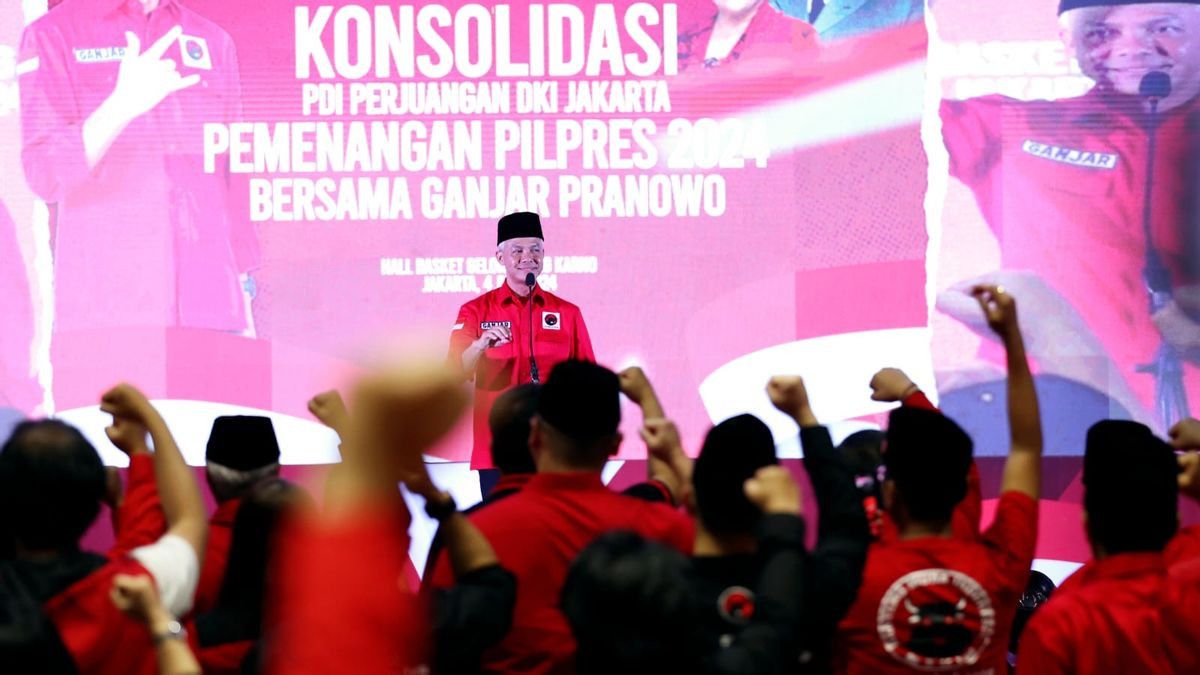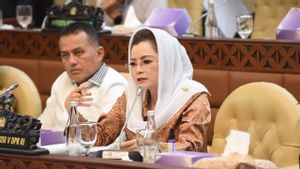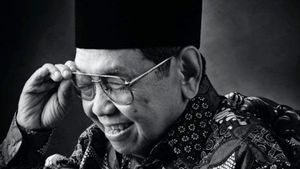JAKARTA - The survey institute Saiful Mujani Research and Consulting (SMRC) has re-released the results of a survey related to the electability of figures who have the potential to become presidential candidates in the 2024 presidential election.
As a result, PDIP presidential candidate Ganjar Pranowo will lead Prabowo Subianto and Anies Baswedan.
"“ Among critical voters, support for Anies Baswedan 19.2 percent, Prabowo Subianto 33.5 percent, and Ganjar Pranowo 37.9 percent," said SMRC research director Deni Irvani in an official release received in Jakarta, Monday, June 5.
Deni said that the difference in votes between Prabowo and Ganjar was not so far statistically because it was less than twice the margin of error of 3.3 percent (the difference was below 6.6 percent).
"And while Anies' voice is significantly different from the two other presidential candidates," he said.
Furthermore, Deni said that in the last 6 months, voters' preference for Anies tended to be weaker. This is one of the explanations why Anies' electability tends to weaken in this period.
"“Meanwhile, Ganjar and Prabowo continue to compete fiercely with relatively balanced support," said Deni.
The selection of samples in this survey is carried out through the random digit dialing (RDD) method. RDD is a technique of randomly selecting samples through the process of generating telephone numbers.
The last survey was conducted on 30-31 May 2023 with a sample of 909 respondents selected through the random phone number generation process.
The survey margin of error is estimated to be ±3.3% at the 95% confidence level, a simple random sampling assumption. Interviews with respondents were conducted by telephone by trained interviewers.
Deni explained that “ critical voters ” are voters who have better access to social-political information sources because they have a phone or cell phone so they can access the internet to find out and behave with social-political news.
“ They generally are lower middle class voters to the upper class, are more educated, and tend to live in urban areas. They also tend to better influence the opinion of the voter group below them. The total number of critical voters nationally is estimated at 80%, ” Deni said.
SEE ALSO:
The English, Chinese, Japanese, Arabic, and French versions are automatically generated by the AI. So there may still be inaccuracies in translating, please always see Indonesian as our main language. (system supported by DigitalSiber.id)
Most Popular Tags
#Prabowo Subianto #New Year #Mother's Day #nataru #NatalPopular
23 Desember 2024, 00:04
23 Desember 2024, 00:55
23 Desember 2024, 03:01
23 Desember 2024, 04:15
23 Desember 2024, 01:41

















